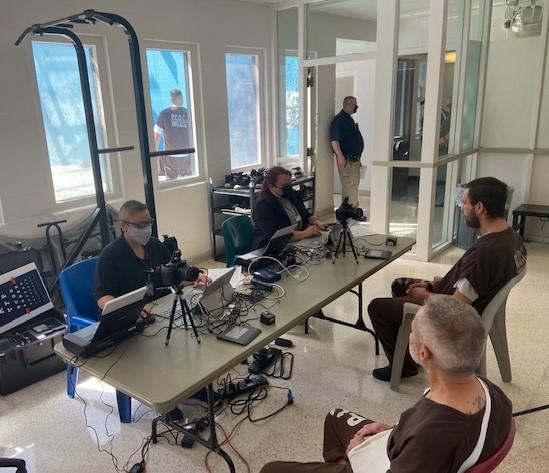Many people use their identification cards every day without much thought, but for those leaving Colorado’s jails, an ID is a ticket back into the community.
An ID is required to find housing, apply for jobs, rent a motel room, and in most cases, even stay at a shelter. Without one, formerly incarcerated individuals—especially those living with a behavioral health disorder—can struggle with reentry.
To help, state agencies are bringing the identification services directly to jails thanks to a partnership between the Colorado Department of Human Services, Office of Behavioral Health (OBH) and the Department of Revenue (DOR).
“It’s something very simple that will help people find a way around a big barrier,” said Kelly Russell, a program manager of OBH’s Jail-Based Behavioral Health program (JBBS). JBBS supports jails in providing in-house mental health and substance use disorder treatment. “I’m grateful that DOR is willing to partner with us. It’s going to be a game changer,” she said.
DOR’s mobile services program launched in April 2021 and has already served close to 150 people in jail, according to Driver License Administration manager Gabriel Bernal. After jail staff pre-register inmates, DOR staff travel to the jail, set up a kiosk and take a photo of each inmate. Identification cards are then printed and mailed to the jail, where staff safeguard them until inmates are ready for release.
“This service will help many individuals successfully transition back into the community as they will be able to gain employment, access housing, and other government services that require government-issued identification immediately upon their release,” said Bernal. “This can mean the difference in these individuals not returning back to jail, ultimately improving our community.”
Galen Beaver, a transition coordinator at Pueblo County Jail, agrees. He recently watched the DOR mobile unit in action at his facility, where about 20 JBBS participants applied for their IDs. He was impressed at how quickly DOR staff processed the requests.
“Most of the inmates have been in jail before, and they know how much of a hassle it is to get their ID,” said Beaver. “I can tell you they are very thankful. It’s exciting to see DOR coming out and doing this.”
While an ID is important for securing basic needs, it’s also vital for continuing behavioral health services, Beaver said. Formerly incarcerated people living with a substance use and/or mental health disorder need it to enroll in treatment and fill prescriptions for medicated-assisted treatment, a highly effective treatment for substance use disorder that pairs anti-craving medication with therapy.
That’s why an ID is much more than a piece of plastic, says Russell. It gives JBBS participants a sense of purpose as they leave jail and helps them maintain their recovery. In the coming weeks, she hopes to help coordinate visits to at least four other county jails across the state.
“It’s a big deal,” she said. “An ID opens a lot of doors.”
